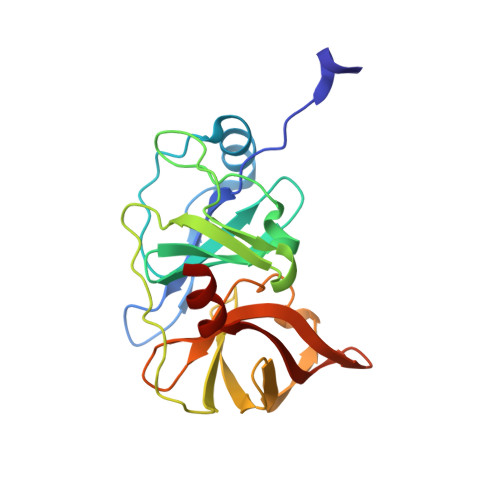Discovery of Quinoxaline-Based P1-P3 Macrocyclic NS3/4A Protease Inhibitors with Potent Activity against Drug-Resistant Hepatitis C Virus Variants.
Nageswara Rao, D., Zephyr, J., Henes, M., Chan, E.T., Matthew, A.N., Hedger, A.K., Conway, H.L., Saeed, M., Newton, A., Petropoulos, C.J., Huang, W., Kurt Yilmaz, N., Schiffer, C.A., Ali, A.(2021) J Med Chem 64: 11972-11989
- PubMed: 34405680
- DOI: https://doi.org/10.1021/acs.jmedchem.1c00554
- Primary Citation of Related Structures:
7L7L, 7L7N, 7L7O, 7L7P - PubMed Abstract:
The three pan-genotypic HCV NS3/4A protease inhibitors (PIs) currently in clinical use-grazoprevir, glecaprevir, and voxilaprevir-are quinoxaline-based P2-P4 macrocycles and thus exhibit similar resistance profiles. Using our quinoxaline-based P1-P3 macrocyclic lead compounds as an alternative chemical scaffold, we explored structure-activity relationships (SARs) at the P2 and P4 positions to develop pan-genotypic PIs that avoid drug resistance. A structure-guided strategy was used to design and synthesize two series of compounds with different P2 quinoxalines in combination with diverse P4 groups of varying sizes and shapes, with and without fluorine substitutions. Our SAR data and cocrystal structures revealed the interplay between the P2 and P4 groups, which influenced inhibitor binding and the overall resistance profile. Optimizing inhibitor interactions in the S4 pocket led to PIs with excellent antiviral activity against clinically relevant PI-resistant HCV variants and genotype 3, providing potential pan-genotypic inhibitors with improved resistance profiles.
Organizational Affiliation:
Department of Biochemistry and Molecular Pharmacology, University of Massachusetts Medical School, Worcester, Massachusetts 01605, United States.


















